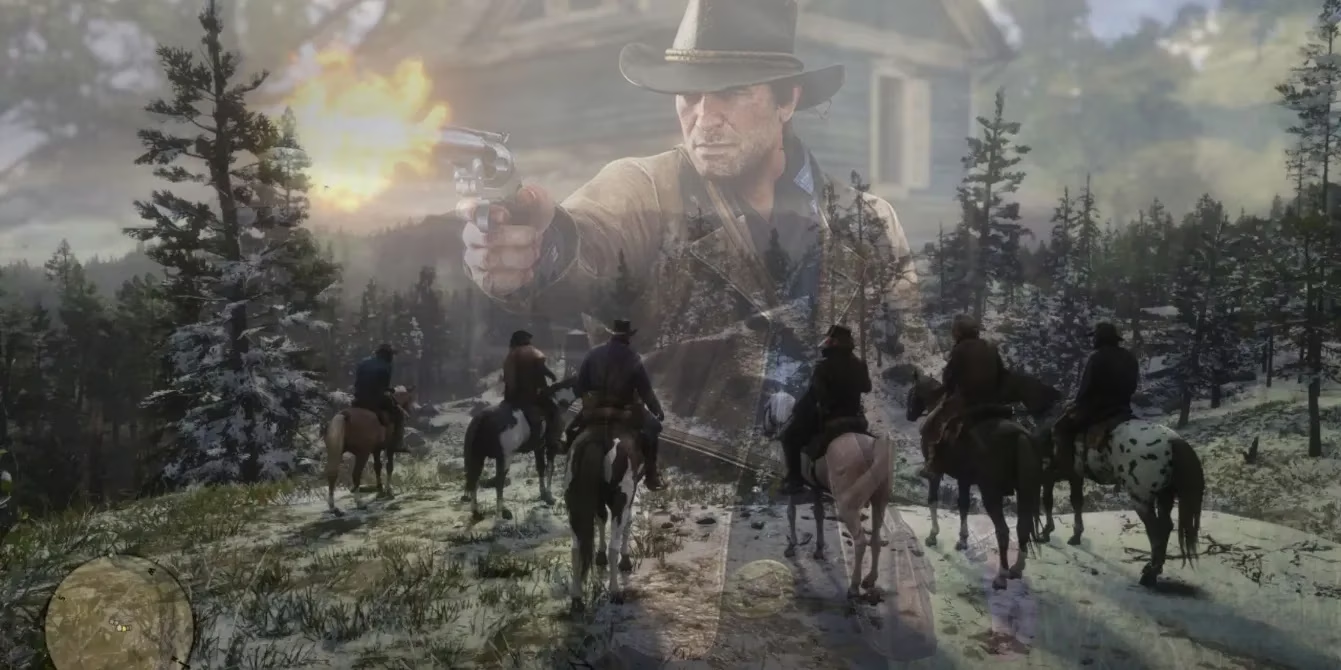Red Dead Redemption 2's Divisive Guarma Chapter and Its Impact on the Franchise's Future
Red Dead Redemption 2's controversial Guarma chapter, blending tropical action with emotional depth, sparks debate over its bold narrative shift and gameplay evolution.

Even in 2025, Red Dead Redemption 2 continues shattering records, recently achieving its highest-ever Steam player count, yet one element persistently divides its passionate fanbase: the controversial Guarma chapter. This abrupt detour transports players from the familiar American frontier to a Caribbean island, creating what remains gaming's most debated narrative pivot six years after release. Tropical gunfights replace methodical cowboy realism, linear combat sequences disrupt open-world freedom, and geopolitical undertones surface unexpectedly. While some applaud this bold tonal shift as a necessary emotional pressure valve following the gang's Saint Denis downfall, others condemn it as a jarring interruption that strips away hard-earned gear and exploration freedom. As whispers of Red Dead Redemption 3 circulate within Rockstar's notoriously secretive studios, this polarizing interlude raises profound questions about the franchise's future direction.
The Unexpected Narrative Detour
Guarma's emergence feels particularly startling given Red Dead Redemption 2's otherwise obsessive dedication to its core setting. Snow-capped mountains, dusty plains, and swampy bayous establish such immersive authenticity that players still uncover new mysteries within its vast American landscape years later. Suddenly plunging into humid jungles and sugar plantations creates deliberate cognitive dissonance – a bold reminder that the game's world extends far beyond mapped borders. This geographical rupture cleverly mirrors the Van der Linde gang's fragmenting reality while hinting at broader global conflicts typically unseen in Western narratives. The temporary abandonment of horseback travel and wilderness survival mechanics serves narrative whiplash: a visual and thematic declaration that Arthur Morgan's world has irrevocably expanded beyond his control.
Gameplay Disruption vs. Emotional Resonance
The chapter's divisiveness stems largely from its radical gameplay transformation:
-
🔄 Pacing Revolution: Following dozens of hours exploring at horseback pace, Guarma accelerates into combat-heavy linearity
-
⚔️ Gear Reset: Players temporarily lose cherished weapons and items, intensifying vulnerability
-
🌴 Environmental Shift: Lush tropics replace earthy Western palette with vivid blues and greens
Detractors argue these elements undermine Red Dead 2's core identity, particularly its celebrated immersion. Limited exploration contradicts the open-world philosophy, while the inability to revisit Guarma post-chapter feels like squandered potential. Yet proponents counter that this constrained intensity brilliantly amplifies the story's emotional crescendo. The compressed, explosive sequence functions as narrative CPR after the gang's slow-burn collapse, with the tropical backdrop symbolizing their severed connection to familiar territory.
| Guarma's Impact | Positive Perspectives | Critical Viewpoints |
|---|---|---|
| Narrative Function | Vital emotional pressure valve | Jarring tonal disruption |
| Gameplay Experience | Refreshing combat-focused intensity | Loss of player agency & progression |
| World-Building | Expanded geopolitical scope | Contradicts open-world immersion |
The Red Dead Redemption 3 Conundrum
Rockstar's legendary secrecy fuels endless speculation about whether future installments will replicate Guarma's structural gamble. The tropical interlude demonstrated how effectively environmental whiplash can heighten narrative stakes – a technique potentially tempting for sequels. South American settings have emerged as popular fan requests following Guarma's intriguing lore teases. Yet compelling arguments caution against formulaic repetition. What felt groundbreaking in 2018 might appear forced in a new installment, particularly without matching narrative justification. The chapter's power derived partly from its shocking unexpectedness; attempting to manufacture similar surprise could easily veer into gimmick territory. Furthermore, modern players increasingly value persistent open worlds over one-time narrative zones, making non-replayable segments harder to justify.
People Also Ask
- Could Guarma have worked as optional DLC instead?
Possibly, though its emotional impact relied on mandatory narrative disruption during the main story's critical turning point. Making it optional might diminish its thematic weight.
- Does Guarma's technology limit future possibilities?
Ironically, Guarma's technical constraints (smaller map, limited AI interactions) might inspire more ambitious detours in next-gen sequels featuring fully realized secondary regions.
- How does Guarma compare to other games' radical setting shifts?
Unlike Final Fantasy VII's segmented continents or The Witcher 3's Skellige Isles, Guarma deliberately avoids seamless integration, making its isolation central to the narrative experience.
Ultimately, Guarma's legacy transcends simple 'love it or hate it' debates. It represents Rockstar's willingness to risk player comfort for artistic vision – a philosophy that shaped their greatest triumphs. Whether Red Dead Redemption 3 embraces similar narrative detours or champions uninterrupted immersion, the decision will reveal much about how the franchise evolves beyond its foundational paradox: painstakingly crafted worlds versus explosively disruptive storytelling. The tension between these creative poles continues defining Rockstar's identity, ensuring that whatever emerges next will spark equally passionate discussions among the faithful.